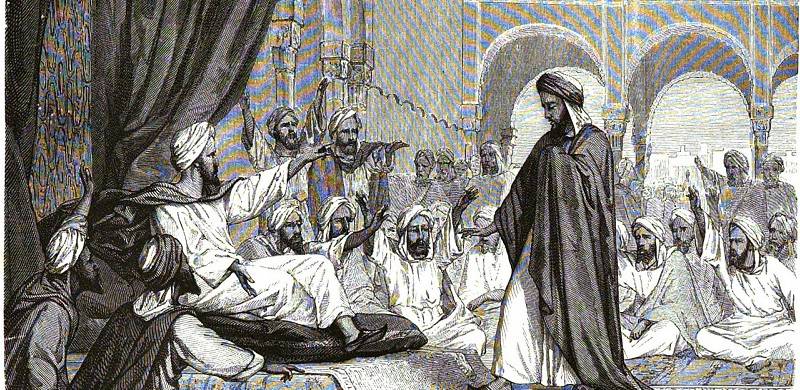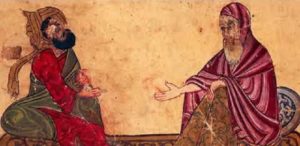
Present-day orthodox Sunni Islam owes 90% of its philosophy to al-Ghazali. The major school of thought i.e. Hanafiya and all its subsets also extract their major teachings from the thought of Ghazali. For example, Shah Walliullah has the influence of Ghazali in all his works and his grandson Shah Abdul Aziz founded Madrassa Deoband on the same thought. From there all the present major groups such as Deobandism, Barelvism, Jamat-i-Islami and others emerged.
The main difference between the thought of Ibn Rushd and Ghazali appears to have been as follows. Although both Ibn Rushd and Ghazali contended that common people can extract morality from literal interpretation of Quranic verses related to such issues, the interpretation of metaphysics should be left to experts. And the difference lies in the approach of both of these people. Ibn Rushd maintained that the experts can know these facts for certain through logic and science. Ghazali asserted that it can only be done by spiritualism and divine guidance. Perhaps for some commentators in our time, this difference is nothing. On the contrary, this is the most vital and key difference which has shaped the destiny of today's Muslim world. Essentially what Ghazali actually said was that you cannot question divinely revealed teachings.

Was he afraid of science and logic? I don't know. But what I know and many scholars maintain is that this is actually the whole bone of contention. For example, one consequence involves the convenient coexistence of science and dogma. A person can be a physicist or chemist and a faith-healer at the same time. This dichotomy has given birth to the cognitive dissonance prominent in today's Muslim world. That is why you see doctors, engineers and PhDs who are merely technologists and not actually scientists. They have no critical thinking abilities because they have been taught to selectively question things. Social sciences have been given no importance. Philosophy, psychology, sociology and anthropology mean nothing.
Another consequence of the downfall of scientific culture in the Muslim world is that when divine revelation was no longer discussed, it opened a Pandora's box of subjectivity of interpretation. Now anyone would interpret holy Scriptures the way they want – and they can insist that their views be treated as an unquestionable form of divinely revealed knowledge. This not just brought about the closure of the Muslim mind but also divided Muslims and made takfir more convenient: it becomes easier to prove that an ideological opponent is denying divinely revealed knowledge and is, therefore, an infidel.
This problem with Ghazali and Ibn Taymiyyah's difference with Ibn Rushd is that it closed the doors of tolerance towards interpretations. In a way, we could consider this to be a closure of the door of Ijtihad.
Contemporary writers, such as the author of an article that I recently read, in defending Ghazali, are trying to reinvent the wheel without even realising what happened between 13th to 21st centuries to Muslims due to such concepts. We are talking of a disdain towards technology, disdain towards print and electronic media and means of publishing, lack of progress in medical science, lack of establishment of institutions and industry, lack of integration even within their own cultural centers, puritanism, lack of economic progress, power abuse, abuse of religion and centralisation of power to clergy and kings/caliphs in the name of religion. The same case of Ibn Rushd vs Ghazali was studied by Western philosophers and they chose Ibn Rushd's version. Look where are they today!
Leave alone technology and industry, and pick up any other indicator of progress (academic scholarship for example) and you come to the same depressing realization about the intellectual decline in the world of Islam since then.
Blindly and dogmatically defending 800-year-old "glorious" philosophers is not the way forward. The way that author in the article that I mentioned completely exonerates Ghazali and puts the blame of the downfall of scientific thought on the Nizamiyah colleges of the Seljuq Dynasty is not going to do any service to intellectual progress in Muslim world. We should move past Ghazali and stop defending him against “imperial knowledge” when he was never a victim of any imperialism but actually was a influential part of an imperial era.
The main difference between the thought of Ibn Rushd and Ghazali appears to have been as follows. Although both Ibn Rushd and Ghazali contended that common people can extract morality from literal interpretation of Quranic verses related to such issues, the interpretation of metaphysics should be left to experts. And the difference lies in the approach of both of these people. Ibn Rushd maintained that the experts can know these facts for certain through logic and science. Ghazali asserted that it can only be done by spiritualism and divine guidance. Perhaps for some commentators in our time, this difference is nothing. On the contrary, this is the most vital and key difference which has shaped the destiny of today's Muslim world. Essentially what Ghazali actually said was that you cannot question divinely revealed teachings.

Was he afraid of science and logic? I don't know. But what I know and many scholars maintain is that this is actually the whole bone of contention. For example, one consequence involves the convenient coexistence of science and dogma. A person can be a physicist or chemist and a faith-healer at the same time. This dichotomy has given birth to the cognitive dissonance prominent in today's Muslim world. That is why you see doctors, engineers and PhDs who are merely technologists and not actually scientists. They have no critical thinking abilities because they have been taught to selectively question things. Social sciences have been given no importance. Philosophy, psychology, sociology and anthropology mean nothing.
Another consequence of the downfall of scientific culture in the Muslim world is that when divine revelation was no longer discussed, it opened a Pandora's box of subjectivity of interpretation. Now anyone would interpret holy Scriptures the way they want – and they can insist that their views be treated as an unquestionable form of divinely revealed knowledge. This not just brought about the closure of the Muslim mind but also divided Muslims and made takfir more convenient: it becomes easier to prove that an ideological opponent is denying divinely revealed knowledge and is, therefore, an infidel.
This problem with Ghazali and Ibn Taymiyyah's difference with Ibn Rushd is that it closed the doors of tolerance towards interpretations. In a way, we could consider this to be a closure of the door of Ijtihad.
Contemporary writers, such as the author of an article that I recently read, in defending Ghazali, are trying to reinvent the wheel without even realising what happened between 13th to 21st centuries to Muslims due to such concepts. We are talking of a disdain towards technology, disdain towards print and electronic media and means of publishing, lack of progress in medical science, lack of establishment of institutions and industry, lack of integration even within their own cultural centers, puritanism, lack of economic progress, power abuse, abuse of religion and centralisation of power to clergy and kings/caliphs in the name of religion. The same case of Ibn Rushd vs Ghazali was studied by Western philosophers and they chose Ibn Rushd's version. Look where are they today!
Leave alone technology and industry, and pick up any other indicator of progress (academic scholarship for example) and you come to the same depressing realization about the intellectual decline in the world of Islam since then.
Blindly and dogmatically defending 800-year-old "glorious" philosophers is not the way forward. The way that author in the article that I mentioned completely exonerates Ghazali and puts the blame of the downfall of scientific thought on the Nizamiyah colleges of the Seljuq Dynasty is not going to do any service to intellectual progress in Muslim world. We should move past Ghazali and stop defending him against “imperial knowledge” when he was never a victim of any imperialism but actually was a influential part of an imperial era.
